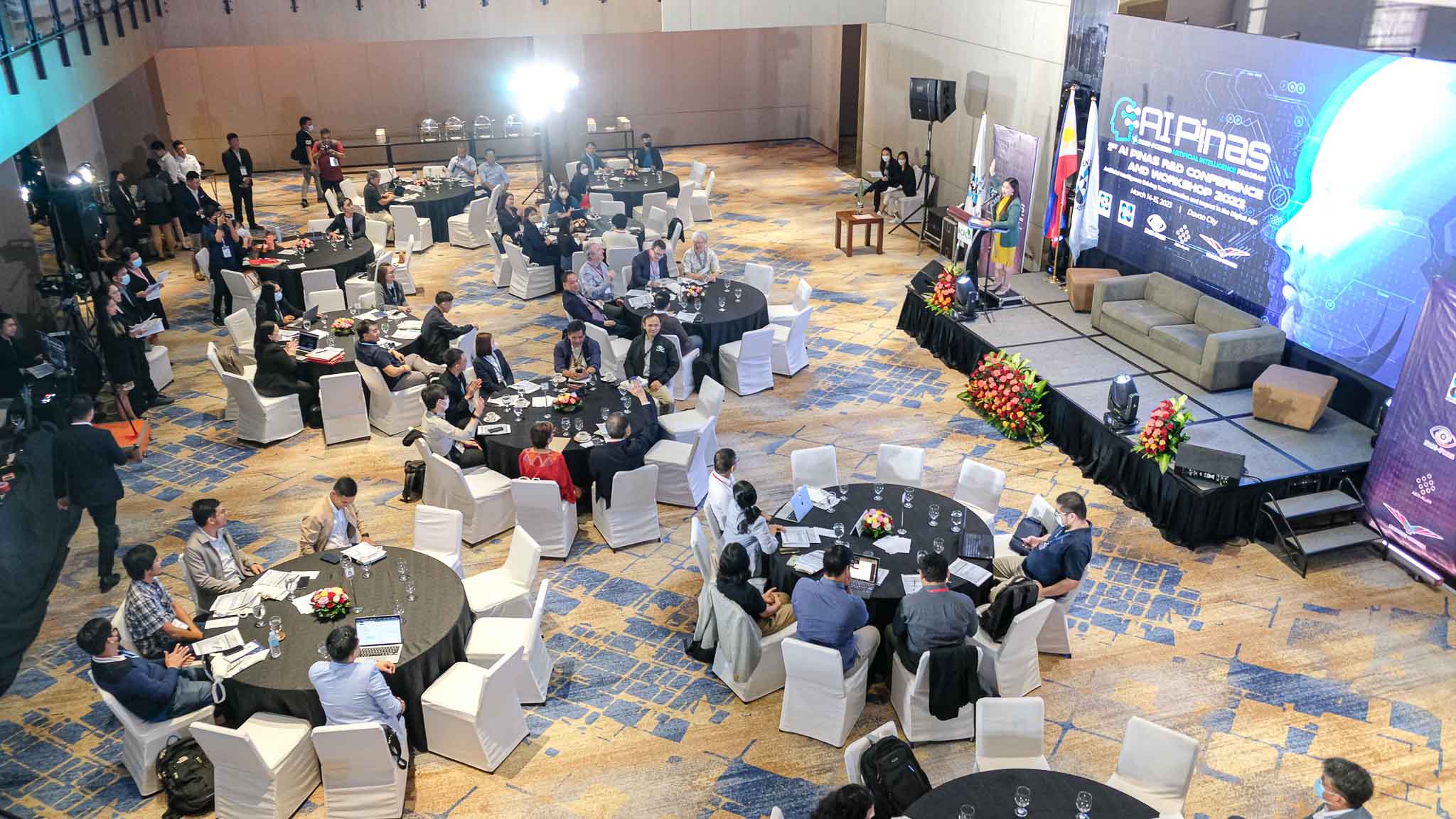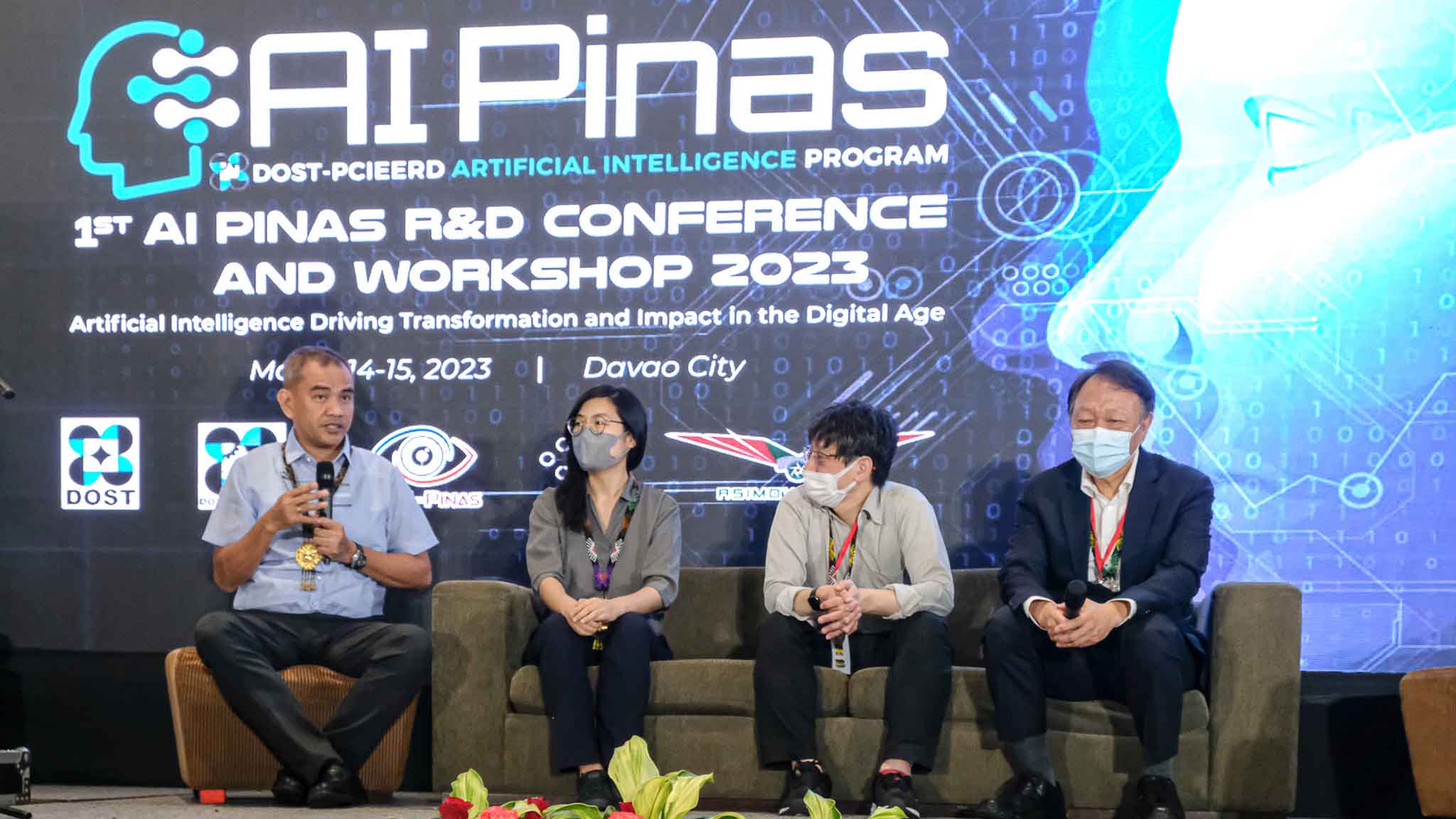
(March 14, 2023, Davao City) — The Department of Science and Technology and the University of the Philippines Mindanao hosted the 1st AI Pinas Research and Development (R&D) Conference and Workshop 2023.
With theme "Artificial Intelligence Driving Transformation and Impact in the Digital Age,” the conference-workshop was attended by 100 participants, including local and international speakers and experts from IBM USA, Supermicro USA, Japan, and Thinking Machines.
The event seeks to raise public awareness about the benefits and applications of artificial intelligence (AI) in various fields.
The topics covered include but are not limited to machine learning, natural language processing, robotics, computer vision, and deep learning applied to health, education, mobility, the environment, disaster risk reduction (DRR), industries, and smart and sustainable cities and communities.
The conference-workshop also served as a venue for experts, researchers, professionals, enthusiasts, and prospective beneficiaries to update the R&D roadmap and develop a national AI R&D program.
The market for artificial intelligence (AI), which includes software, hardware, and services, is anticipated to generate worldwide revenues of $327.5 billion in 2021, up 16.4% from the previous year, according to the most recent Worldwide Semiannual Artificial Intelligence Tracker report from International Data Corporation (IDC).
By 2024, it's expected that the market will have grown to over $500 billion, with impressive total revenues of $554.3 billion and a five-year compound annual growth rate (CAGR) of 17.5%.
A new study from EDBI and Kearney claims that by 2030, AI could boost Southeast Asia's GDP by up to $1 trillion USD. According to the Kearney analysis, the Philippine GDP will increase by 12%, or US$92 billion, by 2030.
DOST Secretary Renato Solidum Jr. acknowledges that AI has the potential to enhance human productivity by automating routine tasks, analyzing massive amounts of data, learning new information, and coming to well-informed conclusions.
"As we focused on the four (4) investment pillars, DOST has pledged PHP 500 million to support the Philippines' rapid scientific development in this area for the country to fully benefit from AI technologies."
Solidum affirmed that DOST has been collaborating with numerous stakeholders to make the AI R&D framework for 2019–2029 useful for its intended beneficiaries.
The framework is concentrated on developing a national infrastructure, including AI R&D centers; empowering more professionals through training and development through DOST-PCIEERD, and encouraging more mission-driven programs with distinctive applications.
"We are also enhancing the capacity of our workforce. Three (3) AI Pinas trainings have resulted in 143 graduates, and now, in collaboration with the Development Academy of the Philippines (DAP), the Analytics Association of the Philippines (AAP), and Coursebank, we hope to upskill and launch the data science careers of our workforce. We aim to have 50,000 Filipino data scientists by 2029 through the Smarter Philippines through R&D, Training, and Adoption (SPARTA) project to meet the needs and demands of our industry as we move towards a digital transformation", said Solidum.
Dr. Lyre Anni Murao, Chancellor of UP Mindanao, also urged the use of AI to facilitate the completion of daily tasks. Today, AI ought to be given more credit for improving our quality of life and strengthening our capacity to contribute to global development.

Dr. Enrico C. Paringit, Executive Director of DOST-PCIEERD shared that "AI for better normal" investments, which were made possible in June 2021, put us at the forefront of using artificial intelligence to advance innovation in the country. From 2017 to the present, we have supported impactful AI projects totaling 480 million pesos.
“As a leader and partner in enabling innovations in the Philippines, DOST-PCIEERD sees to it that it uplifts local capabilities in the regions. Initiatives like this strengthen the bond with more advanced countries and birth new collaborations that can spur socio-economic growth in the future,” added by Paringit.




